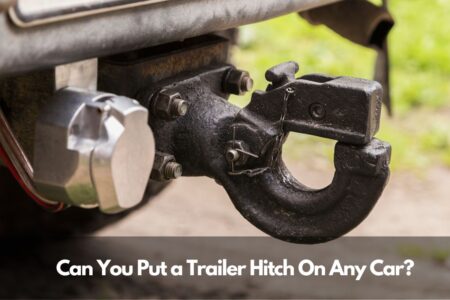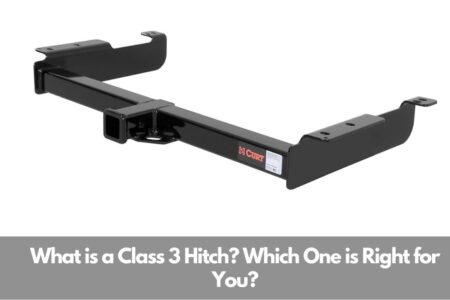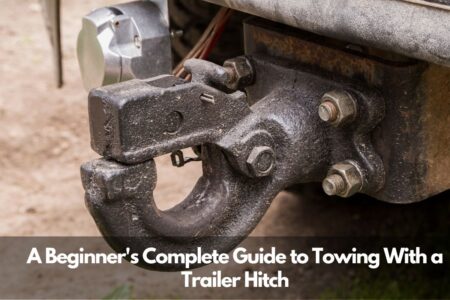
Using a trailer hitch to tow equipment, boats, ATVs, and other cargo can expand what you can do with your vehicle. But if not done properly, trailer towing can also lead to issues that jeopardize safety and your rig.
This FAQ tackles some of the most common questions and concerns that arise when using trailer hitches to ensure smooth, trouble-free towing every time.
Hitch Class and Weight Capacity Questions
Q: How do I know what hitch class I need?
A: The class rating of the hitch must match the Gross Vehicle Weight Rating (GVWR) and tongue weight of your trailer. Trailer specs will list maximum weights. The class rating reflects the maximum towing capacity.
Q: What happens if I use a hitch rated lower than my trailer weight?
A: Exceeding the maximum towing weight and tongue weight capacities of your hitch can cause damage to both your vehicle and trailer. It also compromises your ability to safely tow the load. Always use a hitch rated for your exact trailer weight.
Q: Do weight-distributing hitches increase towing capacity?
A: No, weight-distributing hitches do not increase the overall towing capacity set by your hitch class rating. They improve load balancing and stability, but maximum weights must still be observed.
Q: Can I tow a 5,000 lb trailer with a Class III hitch rated for 5,000 lbs?
A: No. To allow a safety margin you should choose a hitch rated for at least 500 lbs more than your actual trailer weight. So for a 5,000 lb trailer, use a Class IV hitch.
Trailer Sway and Control Issues
Q: Why does my trailer sway while towing?
A: Factors like crosswinds, passing vehicles, improper weight balance, and excessive speed can cause a trailer to sway. Using a sway control device can help stabilize the trailer. Slowing down and maintaining safe speeds prevents sway.
Q: Do I need a special hitch to tow a 5th wheel or gooseneck trailer?
A: Yes, you need a 5th wheel or gooseneck hitch mounted in the bed of a pick-up truck to tow these types of trailers. Regular receiver hitches on a rear bumper are not suitable. Make sure to use a 5th wheel/gooseneck hitch rated for the trailer weight.
Q: My trailer sways dangerously when trucks pass me. What should I do?
A: Trailer sway caused by passing trucks is a sign that your trailer and hitch are not set up properly. Check that the weight distribution is correct. You likely need an anti-sway mechanism or heavier duty hitch rated for the trailer.
Q: I added a friction sway control to my hitch but it still sways. Now what?
A: If your trailer continues swaying even with a friction sway control, the next step is to upgrade to a dual-cam sway control system. This applies more force to keep the trailer aligned. You may also need a heavier duty hitch.
Hitch Installation and Clearance Problems
Q: Do I need a special hitch for my vehicle?
A: Yes, you should always use a trailer hitch designed specifically for your exact vehicle make, model, and year. Generic hitches will not properly integrate with your vehicle frame and systems.
Q: My trailer hitch is causing the rear of my vehicle to drag. What can I do?
A: Having rear vehicle components like the exhaust, suspension, etc. drag on the road means your trailer hitch is not installed correctly. The hitch likely needs to be adjusted higher or modified to create sufficient ground clearance for towing.
Q: How important is Correct Ball Height?
A: Extremely important for towing safety and trailer handling. If the hitch ball is set too high or low, it can lead to trailer swaying, poor weight distribution, inadequate tongue weight, and loss of cargo.
Q: My hitch ball seems to be the wrong size for my trailer coupler. What should I do?
A: You’ll need to replace the hitch ball with one that matches the exact size of your trailer coupler socket. Standard sizes are 1-7/8”, 2”, and 2-5/16”. Your trailer manual will indicate the correct ball size needed. Using mismatched components can damage the hitch.
Locking Pin and Hardware Issues
Q: My hitch pin keeps popping out while towing. How can I prevent this?
A: To secure it, replace a standard hitch pin with a locking pin that has a clip to prevent it working loose. Also check that the hitch ball is a perfect fit for the coupler and there is no play allowing components to shift.
Q: Do I need to use cotter pins with my hitch hardware?
A: Cotter pins are a must to securely attach castle nuts and prevent them loosening over time with vibration. Bend their ends over to prevent unthreading. Do not tow without properly installed cotter pins.
Q: How often should I retorque the bolts on my hitch?
A: You should re-tighten all hitch hardware after the first 100 miles of towing, and check torque specifications at least twice per year. Hitch bolts can work loose over time, leading to component failure if not properly torqued.
Q: My locking hitch pins are always difficult to remove even with grease. Solutions?
A: Stuck locking pins can be freed up by using a penatrating oil like PB Blaster instead of regular grease. Also replace worn pins and clips that may be binding up. Check that the receiver is free of debris before inserting the pin.
General Towing Questions
Q: Can I leave my hitch installed when not towing?
A: There typically isn’t a problem leaving your hitch attached all the time. Just be sure to remove the ball mount and secure with a plug when not towing. Some states prohibit protruding hitches.
Q: How do I clean and care for my hitch?
A: Keep your hitch ball freshly greased and free of dirt buildup. Check for cracks or damage periodically. Use soap and water to clean the mounting points and inside the receiver tube to prevent rust.
Q: Is trailer sway more likely with bumper pull or fifth wheel hitches?
A: Bumper pull receiver hitches are more prone to trailer sway since the pivot point is behind the rear axle. Fifth wheel and gooseneck hitches mounted over the axle provide more stability and reduce sway.
Following proper hitch selection, setup, use and maintenance guidelines will allow you to tow safely and prevent many common trailer hitch problems encountered on the roads.





